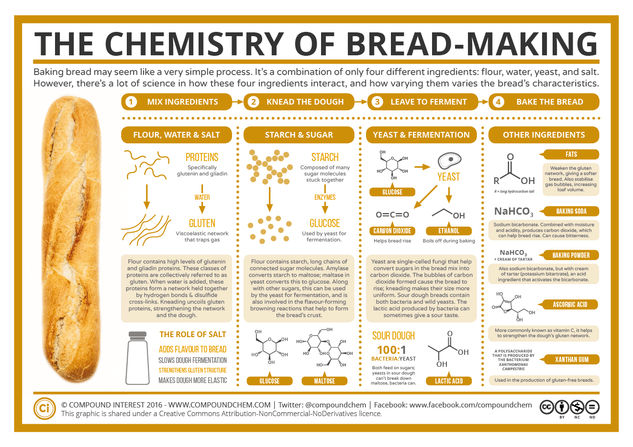© Compound InterestBaking Bread
Though chemistry teachers might have to regularly field questions about the chemistry of ‘Breaking Bad’ these days, baking bread is probably more likely to figure on a list of their recreational activities. Bread-making is a process that seems simple, essentially involving the mixing of just four ingredients. However, there’s a lot more chemistry to it than meets the eye; here we delve into the science to work out what’s going on in your loaf.
The process of making bread can be broken down at a very simple level into four steps. First, the ingredients are mixed; the four basic ingredients used to make a bread are flour, water, yeast, and salt. Combining these creates a dough, which is then kneaded before being left to rise, before being baked. Sounds pretty straightforward, right? Perhaps, but at a molecular level there’s a lot more happening.






